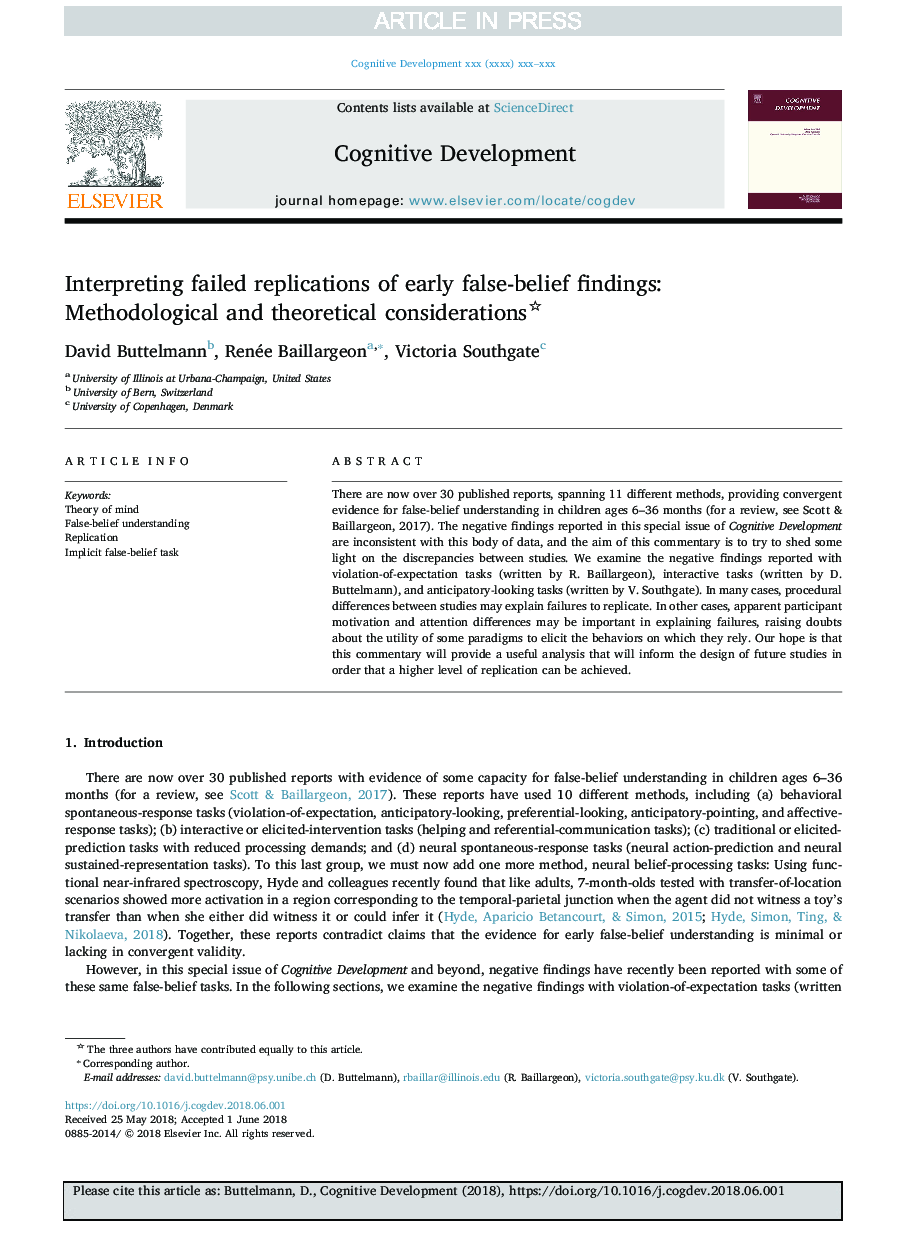| Article ID | Journal | Published Year | Pages | File Type |
|---|---|---|---|---|
| 7272242 | Cognitive Development | 2018 | 13 Pages |
Abstract
There are now over 30 published reports, spanning 11 different methods, providing convergent evidence for false-belief understanding in children ages 6-36 months (for a review, see Scott & Baillargeon, 2017). The negative findings reported in this special issue of Cognitive Development are inconsistent with this body of data, and the aim of this commentary is to try to shed some light on the discrepancies between studies. We examine the negative findings reported with violation-of-expectation tasks (written by R. Baillargeon), interactive tasks (written by D. Buttelmann), and anticipatory-looking tasks (written by V. Southgate). In many cases, procedural differences between studies may explain failures to replicate. In other cases, apparent participant motivation and attention differences may be important in explaining failures, raising doubts about the utility of some paradigms to elicit the behaviors on which they rely. Our hope is that this commentary will provide a useful analysis that will inform the design of future studies in order that a higher level of replication can be achieved.
Related Topics
Social Sciences and Humanities
Psychology
Developmental and Educational Psychology
Authors
Renée Baillargeon, David Buttelmann, Victoria Southgate,
